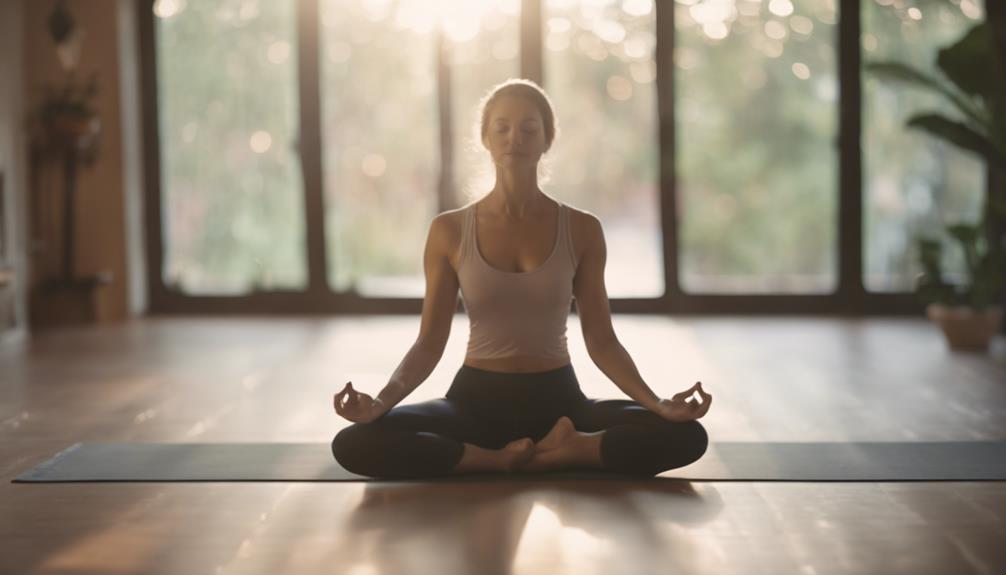The journey of recovery from addiction can be a challenging and multifaceted process. Many individuals find solace and strength in various practices, among which the 12-Step Program has long been a cornerstone. Recently, yoga has emerged as a complementary practice that can enhance the recovery experience. This article explores the intersection of yoga and the 12-Step Program, highlighting how the principles of both can work synergistically to promote healing, mindfulness, and emotional well-being.
Understanding the 12 Steps: A Brief Overview
The 12-Step Program, originally developed by Alcoholics Anonymous (AA), provides a structured approach to overcoming addiction. It is based on principles of honesty, accountability, and support from a community of peers. The steps guide individuals through recognizing their addiction, seeking help, making amends, and ultimately helping others in their recovery journey. This holistic approach emphasizes the importance of spiritual growth, personal responsibility, and sustained commitment to sobriety.Yoga Keller TxYoga Hotwife Jen LarsenYoga Wilkes Barre Pa
The core philosophy of the 12 Steps revolves around surrendering to a higher power and recognizing the limitations of self-will. This process encourages individuals to confront their past, take responsibility for their actions, and build a foundation of support through fellowship. By fostering a sense of community and shared experience, the 12-Step Program celebrates the journey of transformation and resilience, empowering individuals to reclaim their lives.
The Role of Mindfulness in Recovery Journey
Mindfulness plays a crucial role in the recovery journey, as it helps individuals stay present and aware of their thoughts and feelings without judgment. By cultivating mindfulness, recovering individuals can better manage cravings, anxiety, and triggers that may lead to relapse. Mindfulness practices encourage self-reflection and compassion, allowing individuals to recognize patterns of thought that may contribute to their addiction.
Incorporating mindfulness into the 12-Step Program can enhance the effectiveness of each step. For instance, during the fourth step, which involves taking a moral inventory, mindfulness can provide clarity and foster a sense of acceptance. By developing a mindful approach to recovery, individuals can gain greater insight into their behaviors and motivations, thereby increasing their chances of sustained recovery.
How Yoga Supports Emotional Well-being in Recovery
Yoga is a holistic practice that encompasses physical postures, breathing techniques, and meditation, all of which can be beneficial for emotional well-being. Engaging in yoga helps individuals develop a stronger connection to their bodies, fostering awareness and self-acceptance. This increased self-awareness can be particularly helpful for those in recovery, as it encourages individuals to explore the underlying emotions and behaviors that contribute to their addiction.
Moreover, yoga promotes the release of endorphins and reduces stress, both of which are vital for emotional healing. In recovery, managing stress is essential, as high levels of stress can trigger cravings and relapse. By integrating yoga into their daily routine, individuals can cultivate a sense of calm and balance, ultimately supporting their emotional resilience as they navigate their recovery journey.
Integrating Yoga into the 12-Step Program
Integrating yoga into the 12-Step Program can provide an additional layer of support for recovery. Many recovery programs now offer yoga classes as part of their curriculum, recognizing its potential to enhance the therapeutic process. By blending the principles of yoga with the 12 Steps, individuals can explore new avenues for self-discovery and healing, thereby enriching their recovery experience.
Incorporating yoga can also create a supportive environment where participants can build community and share their experiences. Group yoga sessions foster camaraderie and connection, allowing individuals to engage in a shared practice that reinforces the communal aspects of the 12-Step Program. This integration can help participants develop a holistic approach to recovery that addresses both physical and emotional dimensions.
Exploring Different Yoga Styles for Personal Growth
Yoga encompasses a variety of styles, each offering unique benefits that can complement the recovery journey. Hatha yoga, for instance, focuses on foundational poses and breathwork, making it accessible for beginners. Vinyasa, on the other hand, provides a more dynamic practice that emphasizes the flow of movement and breath, which can be invigorating and energizing for those in recovery.
Additionally, restorative yoga can be particularly beneficial for individuals seeking a gentle approach to healing. This style emphasizes relaxation and deep stretching, allowing practitioners to release tension and cultivate a sense of peace. By exploring different yoga styles, individuals can find the practice that resonates most with them, encouraging personal growth and deeper connection to their recovery process.
The Benefits of Breathwork in Addiction Recovery
Breathwork, a key component of yoga, involves various techniques to improve breath awareness and regulate the body’s stress response. Engaging in breathwork can significantly reduce anxiety and promote relaxation, making it an effective tool for individuals in recovery. Controlled breathing exercises can help manage cravings and emotional distress, offering a practical method to cope with challenging situations.
Furthermore, breathwork can enhance mindfulness and focus, allowing individuals to cultivate a deeper understanding of their thoughts and feelings. By incorporating breathwork into their daily routine, individuals can develop greater emotional regulation and resilience. This practice not only supports recovery but also promotes overall mental health and well-being.
Creating a Safe Space for Yoga and Healing
Creating a safe and welcoming environment for yoga practice is essential in supporting individuals on their recovery journey. A nurturing space fosters a sense of safety and belonging, where participants feel comfortable exploring their emotions and vulnerabilities. This environment can be established through the use of calming décor, soft lighting, and supportive community members who respect each individual’s journey.
In addition, facilitators should promote inclusivity and understanding, ensuring that all participants feel valued and accepted. By maintaining open communication and encouraging feedback, practitioners can build a supportive community that reinforces the healing aspects of yoga and recovery. A safe space allows individuals to engage fully in their practice, which is crucial for emotional and physical healing.
Case Studies: Success Stories of Yoga in Recovery
Numerous case studies have highlighted the positive impact of yoga on individuals in recovery. For example, a study conducted within a residential treatment facility found that participants who engaged in regular yoga sessions reported decreased levels of anxiety and improved emotional regulation. Many individuals noted that yoga allowed them to reconnect with their bodies, fostering a sense of empowerment and self-worth.
Another case study examined a community-based recovery program that integrated yoga as a core component. Participants who practiced yoga alongside the 12-Step Program experienced increased social connectedness and reported greater satisfaction with their recovery journey. These success stories serve as powerful testimonials to the potential benefits of incorporating yoga into addiction recovery.
Overcoming Resistance: Yoga for Skeptical Individuals
For individuals skeptical of yoga’s effectiveness in addiction recovery, it is important to highlight its grounding principles and benefits. Often, skepticism arises from misconceptions about yoga being solely a physical practice or a spiritual endeavor. However, yoga emphasizes practical techniques that can aid in emotional regulation and stress management, crucial components of recovery.
Encouraging skeptical individuals to approach yoga with an open mind can lead to surprising insights. Starting with gentle yoga sessions or breathwork can provide an accessible entry point, allowing participants to experience the benefits firsthand without feeling overwhelmed. By creating a non-judgmental environment, individuals can gradually explore the potential of yoga in enhancing their recovery journey.
Tips for Starting Yoga During the 12-Step Process
For those considering incorporating yoga into their recovery journey, a few practical tips can facilitate the process. Firstly, seeking out beginner-friendly classes or online resources can help ease the transition into yoga practice. Focusing on foundational poses and breathwork can build confidence and familiarity with the practice.
Additionally, individuals should allow themselves to be patient as they navigate this new endeavor. It is essential to listen to one’s body and recognize that everyone’s yoga journey is unique. Setting realistic expectations and celebrating small milestones can foster a sense of accomplishment and encourage continued engagement in both yoga and the 12-Step Program.
The integration of yoga into the 12-Step Program offers a holistic approach to addiction recovery, addressing both physical and emotional dimensions of healing. By fostering mindfulness, emotional well-being, and community support, yoga can enhance the recovery experience for individuals seeking a path to sobriety. As more individuals discover the synergistic benefits of these practices, the potential for holistic healing within addiction recovery continues to grow. Whether one is a seasoned practitioner or a curious beginner, the journey of combining yoga and the 12 Steps may lead to newfound strength and resilience on the path to recovery.


